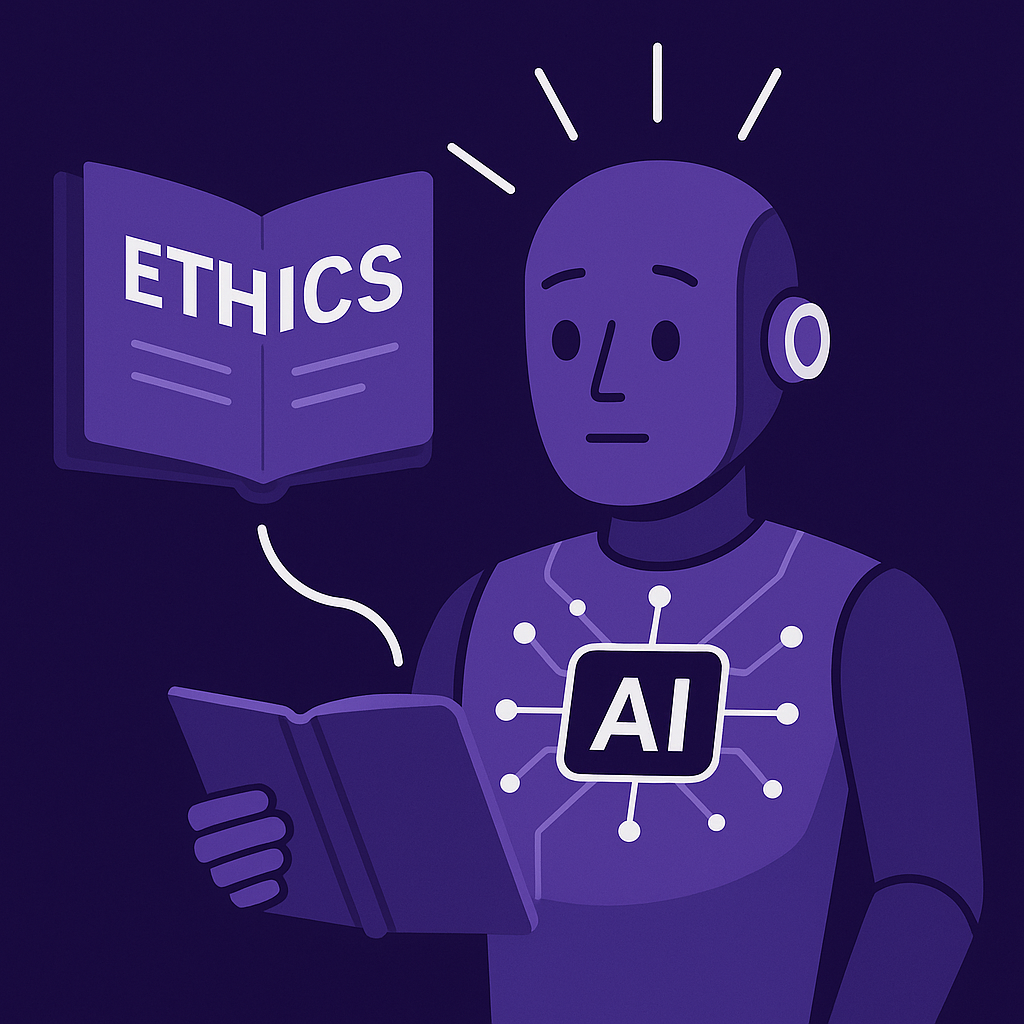The rapid rise of generative AI is transforming how we write, design, market, and innovate—but with that power comes serious ethical responsibility. As tools like ChatGPT, DALL·E, and other generative AI models become mainstream, business leaders are being called to view these technologies through an ethical lens.
In her book, AI First, Human Always, Sandy Carter emphasizes the importance of adopting an AI-first approach while ensuring it aligns with ethical and responsible innovation. If you’re a business leader navigating this new frontier, this is your blueprint to use AI not only effectively, but ethically.
What Are the Ethical Challenges of Using Generative AI?
Understanding AI Ethics in Generative AI Systems
Generative AI ethics refers to the guiding ethical frameworks that govern how AI is developed, trained, and deployed. The core challenge lies in the use of generative AI systems that can produce human-like content without context, attribution, or clarity on data used to train them.
These language models, particularly large language models like those from OpenAI, raise questions around truth, accountability, and bias. An AI that hallucinates content, for example, may unintentionally spread misinformation.
The Impact of Misinformation Created by AI-Generated Content
One of the most concerning ethical implications of generative AI is the ease with which it can produce AI deepfakes, misleading text, or biased outputs. The content generated by these tools, if unchecked, can mislead users or damage reputations—especially when deployed in mass communication, media, or education.
Addressing Ethical Concerns in AI Models
Tackling these concerns means understanding how the data sets used to train generative models influence AI outcomes. Developers must commit to reducing bias in AI, improving the accuracy of a generative AI, and ensuring that its output reflects diverse and representative data.
How Does Generative AI Impact Data Privacy and Security?
The Role of Training Data in Generative AI Ethics
Data is the foundation of all generative AI applications. But what happens when that data is sensitive, proprietary, or collected without proper consent? Questions around data used to train these systems have triggered global debate.
Employees across companies—especially those in enterprise technology—must understand what types of input are being entered into tools like ChatGPT and whether their employees are allowed to use these tools in line with legal frameworks.
Ensuring Transparency in AI Systems
AI transparency is now a legal and ethical necessity. Users should be able to understand how the AI model was trained, what data sets it draws from, and how outputs are generated.
In our previous post on AI in Cybersecurity, we explored how security systems benefit from AI techniques but also emphasized the need for transparency to protect against cyber threats. The same logic applies here—if users don’t know how the system works, they can’t trust it.
How Can Ethical AI Frameworks Guide the Use of Generative AI?
Developing a Framework for Responsible AI
Responsible AI development is guided by ethical guidelines that prioritize fairness, accountability, transparency, and human oversight. Organizations should adopt ethical frameworks tailored to their AI use cases, especially when generative AI tools are involved in high-impact decisions.
Sandy Carter’s AI First, Human Always advocates for aligning AI development with these guiding ethical principles, making the case that companies must use AI responsibly to drive innovation without compromising values.
Implementing Best Practices for Using Generative AI
Key best practices include:
- Documenting how AI tools may be used within the business
- Clarifying appropriate use of input and output
- Creating policies for monitoring AI-generated content
- Conducting regular audits to assess ethical alignment
Using generative AI models responsibly requires ongoing education and oversight—not a set-it-and-forget-it mentality.
What is the Role of AI Companies in Promoting Ethical AI?
The Responsibility of Developers and Users of Generative AI
The responsibility of ensuring the ethical use of AI doesn’t lie solely with developers—it’s shared across the ecosystem. From OpenAI to startups, ethical development includes:
- Addressing the impact of generative AI on misinformation
- Preventing model misuse (e.g., AI deepfakes)
- Educating end users about potential pitfalls
Equally, users of genAI technology must recognize that generative AI’s outputs are only as good as their inputs—and it’s on them to evaluate the reliability and context of the results.
How AI Companies Can Address Ethical Issues
Many AI companies now include ethical expectations in their deployment practices. This includes publishing legal frameworks, offering content usage guidelines, and using AI agents to monitor for misuse in real time.
Ultimately, ethical and responsible deployment of generative artificial intelligence starts at the boardroom level and flows down through design, data science, legal, and marketing.
How Do Generative AI Tools Affect the Environmental Impact?
Assessing the Environmental Impact of AI Technologies
Training large language models requires enormous energy consumption. The environmental impact of generative AI technologies—especially carbon emissions tied to GPU usage—is becoming a serious consideration in the AI ethics conversation.
Strategies for Minimizing the Environmental Footprint of AI Use
To minimize AI’s environmental footprint, companies can:
- Opt for more efficient AI models
- Limit retraining cycles
- Use cloud providers with clean energy initiatives
- Consider how often generative AI tools are trained and deployed
Just like cybersecurity or privacy, sustainability is an essential part of ethical AI practices.
Final Thoughts: Make Generative AI Ethics Part of Your AI-First Mindset
We’re entering a world where generative AI will touch every document, image, video, and voice recording. Navigating this new world ethically is no longer optional.
AI First, Human Always by Sandy Carter offers a compelling case for putting ethics at the heart of innovation. It’s more than a business book—it’s a leadership guide for any organization ready to adopt an AI-first approach with integrity.
📘 Explore the AI-first mindset and get your copy of AI First, Human Always
